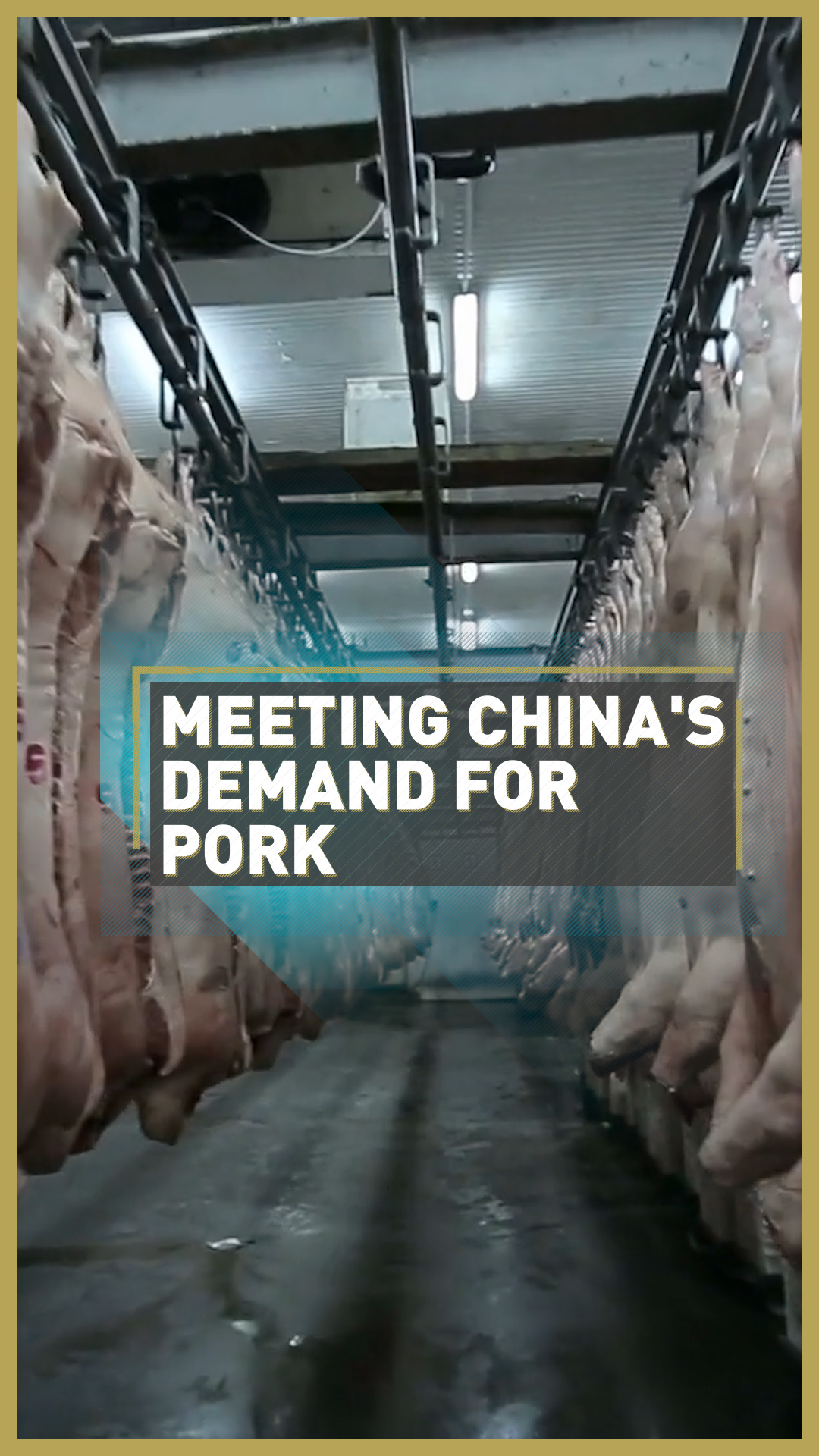"China is committed to creating a more marketized, law-based, internationalized trade system for companies all over the world."
Chinese Premier Li Keqiang was optimistic about China-European Union (EU) relations in a statement released following high-level discussions between leaders from the two powers.
The statement suggests both sides are committed to concluding the China-EU Comprehensive Investment Agreement this year, which is expected to lead to broader access to the Chinese market for European business and investors.
Premier Li added: "We hope Europe, too, could keep that momentum and continue opening up its trade and investment market while easing restrictions on exports to China."
Below we have a graphic representation of the considerable contribution of the EU and China, respectively, to the world's Gross Domestic Product (GDP). And a video highlighting the importance of China to German pork farmers.
Beyond the news from Brussels, the reverberation from Wirecard's loss of $2.1 billion continues to dominate financial news in Germany and beyond, as police open an inquiry into a potential fraud case against the company.
Enjoy reading,
Daniel Harries
Digital correspondent
P.S. Did you know we send this briefing by email, too?
You can sign up to receive it here.

Britain's government would have struggled to raise money in March if the Bank of England had not intervened with 200 billion pounds ($248 billion) of asset purchases to calm the bond markets, the bank's governor, Andrew Bailey, says.
Virgin Galactic has signed an agreement with NASA to develop a program to promote private astronaut missions to the International Space Station.
Germany's Wirecard says that the 1.9 billion euros ($2.1 billion) missing from its accounts was likely never there and it is looking at the sale or closure of parts of its business as it seeks to avert a coming financial crisis.
National regulators and supervisory institutions worked hard and did their job in the Wirecard case, says Germany's finance minister, Olaf Scholz.
Britain's industrial output suffered its biggest quarterly fall on record during the three months to June as COVID-19 disrupted operations, the Confederation of British Industry has revealed.
Indonesia's unemployment rate could reach its highest point in more than a decade this year due to the pandemic, according to ministers in the country.
A majority coalition of parties in Denmark, one of the most ambitious countries regarding climate change, have agreed to introduce a tax on emissions of carbon dioxide and greenhouse gases.
Struggling amid the pandemic, American Airlines Group says it plans to secure $3.5 billion in new financing, to improve the company's liquidity.
China has reclassified petrol-electric hybrid vehicles so they, under clean car regulations, can get more favorable treatment than all-petrol or diesel counterparts, making it easier for auto makers to meet environmental quotas.
Britain intends to change laws to allow further scrutiny of foreign takeovers to ensure they do not threaten the country's ability to tackle public health emergencies amid the global pandemic, the government says.
The small U.S. businesses that receive loans from the nation's $600 billion-plus coronavirus aid program will no longer be anonymous, amid pressure from the public and government watchdogs.
The German government held last-ditch talks with Lufthansa's biggest shareholder, which is threatening to block a $10 billion (9 billion euro) state bailout for the airline unless the terms are adjusted.
German pig farmers are thriving, in part thanks to a surge in demand from China after exporting half a million tons of pork to the country last year. Their surging popularity in China could mean that German pigs play a surprising role in talks as Brussels and Beijing continue to discuss their future trading relationship.
01:42

Théo Rougier, is the coordinator at Our Choice, Plane-Free Tourism. Amid the turmoil blighting the aviation industry during the COVID-19 outbreak, he spoke to CGTN Europe about the prospect of a sustainable kind of tourism, one without planes.
What role did the COVID-19 outbreak have on the campaign?
People who thought that the plane was necessary for their lives realized – since it was no longer possible to fly for two months – that it was possible not to do it anymore.
What is the goal of Our Choice, Plane-Free Tourism?
Today, also in the context of the approaching summer holidays, we want to offer an alternative to people who can also take a holiday, get some fresh air, etc..., without having to go far, without having to discover a so-called 'exotic' country, without having to destroy the planet by trying to explore it.
What are you offering to potential tourists?
We've chosen 10 destinations in France that are worth all the international destinations. And we also have a group on Facebook, so that people can share their experiences. We believe that people who want to get started need two things: one, they need inspiration; and two, they need people who can answer their questions, that's what we're trying to provide.
A third of the world's GDP comes from China and the EU combined. Looking at World Bank and Eurostat data from the latest available year, 2018, the significance of the two powers to the world's economy and to each other is evident.
Source(s): Reuters
,AP